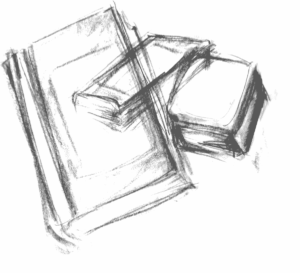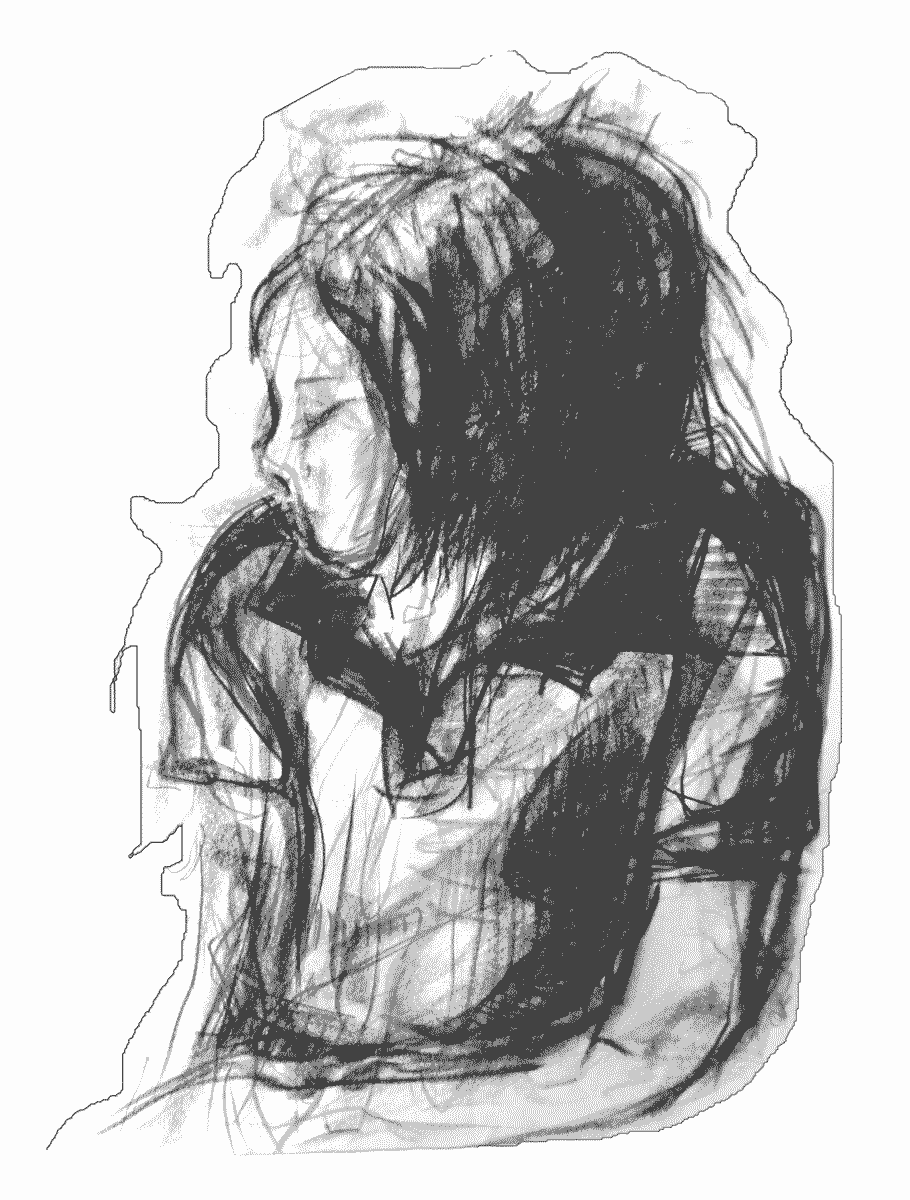The first time I read still I was sitting at a table in the middle of a busy mall. Surrounded by the sounds that people make when they walk past you — footsteps, quiet conversation, not-so-quiet conversation, phone notifications, rustling purses — it was impossible not to be aware of the world around me. As I read the book’s opening poems I felt myself pull inwards. The noise of the mall began to fade, the people in my peripheral vision became less solid, and I became more aware of the feeling of the wooden table against my skin. still began by making me aware of my body, the positioning of my limbs, the passage of time, but as I kept reading this feeling of interiority — of being within myself — quickly gave way to a profound sense of alienation. I knew that there were hundreds of people walking past, and I recognized myself as an individual inhabiting my own body, but reading still blurred the lines that defined my “I” and my “other”. I found it hard to recognize both the “I” within myself and the “other” that surrounded me

still is Anahita Jamali Rad’s second full-length book of poetry after 2016’s for love and autonomy, and it is a difficult book to describe. Dense, complex, philosophical; both it’s vocabulary and form require your full attention, even just to grasp their literal meaning. Understanding the significance and depth of each poem takes time (and in my case multiple re-reads) but the experience is deeply rewarding. Jamali Rad is an Iranian born poet, author, and visual artist based in Tiohtià꞉ke on the Traditional Territory of the Kanienʼkehá꞉ka. They also design and edit House House Press. Jamali Rad describes their work as being informed by anti-imperialist materialist theory, and says that it explores materiality, history, affect, ideology, violence, class, collectivity, desire, place, and displacement.
In an interview, French Philosopher Simone de Beauvoir describes all good literature as containing “a certain truth”, that “it must say something specific (…) while still being general enough to move [someone]”. still is a very specific and personal work, Jamali Rad’s inner monologue and emotions are laid bare — but the portrait it paints of what it’s like to be living under late capitalism has enough truth to it that I can see most readers being profoundly emotionally affected. Jamali Rad describes the profound alienation and hopelessness many of us feel in a strikingly direct way. One good example being the poem, “A Study of the Materially Inclined” which declares, “before the assumption that there is an end / there is boredom, suffering, and generalized pain / a textile covers / a crumpled garment on the bed / a lopsided shoe or teetering glass / papers strewn or folded neatly / people come and go, nature acts / real or unreal, time passes inadvertently”. These themes culminate in still’s title sequence, a short but powerful poem where the narrator describes disappearing from the material world — becoming irrecoverable. The poem’s meaning will depend on the reader, but its last stanza, “since, finally, I disappeared / without material or history / without a body / or a place to be buried” to me encapsulated a certain truth. The ultimate consequence of the vague, undefined, and directionless lives that our society ultimately pushes us towards living.

One of the most striking aspects of still is its form. Jamali Rad writes in a very distinct style that greatly lends itself to conveying the work’s message. One of still’s earliest sequences is a set of 5 numbered “logs”. These all have the same structure; a series of two line stanzas. Each stanza is separated by a significant amount of white space, giving them a sense of disconnectedness, yet these logs are delivered in first-person, which gives the sensation of an inner monologue. The lines and stanzas are often confusing — often eschewing grammar — and many of the thoughts the poem puts forward feel disconnected. It’s as if they are coming out of thin air. While these may seem to be negative qualities, this is, in effect, an accurate representation of our internal worlds. Our thoughts are often disjointed, confusing and alienating, but loaded with meaning. The same holds true for Jamali Rad’s writing, and as a result, it is very easy to feel yourself being pulled inwards. To almost start perceiving these thoughts as if they were your own.
Considering it as a whole, still is a powerful reflection on the modern condition. It caused me to deeply reflect on my relationship with myself, and the society that I inhabit. While at first glance it may appear inaccessible, with its complex language and structure, contained within it is a level of emotional depth and richness that very few works of poetry can claim to have. Jamali Rad maintains this until still’s powerful final lines: “kill the “I” / rewrite history / burn all flags / burn all bridges, burn / personalized programs / facial recognition software / free delivery / / and invent a new language / / invent new souls”


